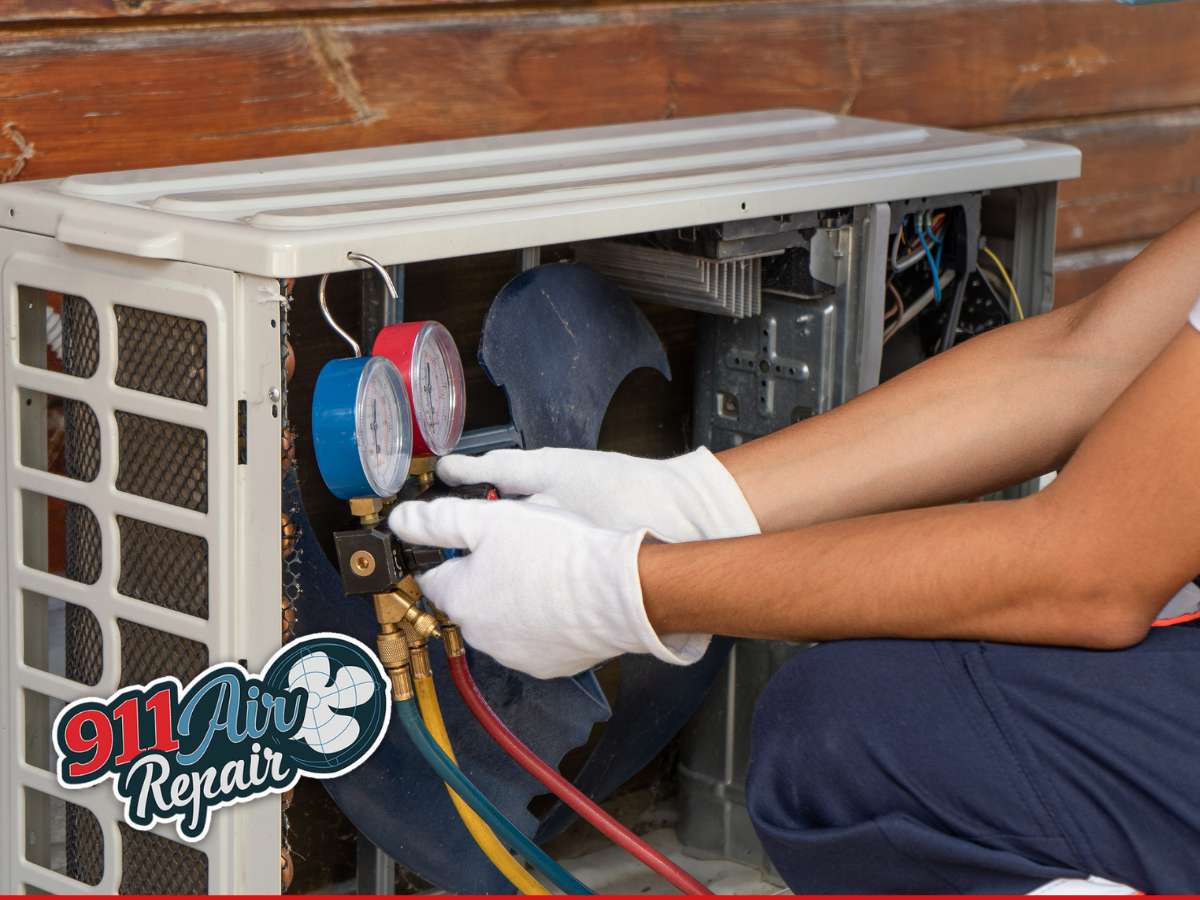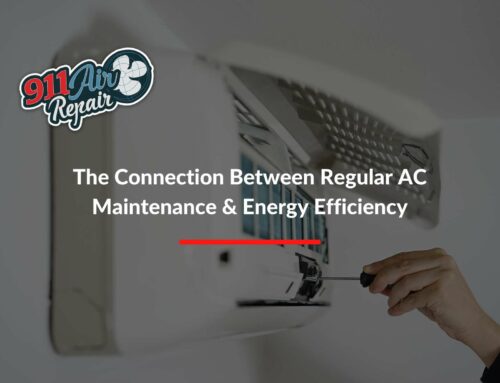Exploring Pipe Varieties For Efficient Air Conditioning Systems: Materials & Uses
Air conditioning (AC) systems are intricate setups comprising various components, including pipes that play a crucial role in the system’s functionality. These pipes are essential for transporting refrigerant, water, or air throughout the system, ensuring optimal performance and efficiency.
In AC installations, different types of pipes are utilized based on factors like the type of refrigerant used, the system’s design, and environmental considerations. Understanding these pipe types and their significance can help make informed decisions during AC installations and maintenance.

Why Proper Piping Is Crucial For Your AC System’s Efficiency
Before delving into the types of pipes used in AC installations, it’s essential to grasp why proper piping is crucial:
- Efficient Refrigerant Flow: The pipes in an AC system facilitate the circulation of refrigerant, which is vital for cooling. Properly sized and installed pipes ensure smooth refrigerant flow, optimizing cooling performance.
- Preventing Leaks: High-quality pipes and fittings are essential for preventing refrigerant leaks, which can lead to system inefficiencies, environmental concerns, and increased maintenance costs.
- System Longevity: Well-designed piping contributes to the overall longevity of the AC system. Properly installed pipes experience fewer issues over time, reducing the need for frequent repairs or replacements.
- Energy Efficiency: Efficient piping reduces energy consumption by allowing the system to operate at peak performance levels, resulting in lower utility bills and reduced environmental impact.
Exploring Different Pipe Materials Used In AC Systems
Copper Pipes
Copper pipes have been a traditional choice in AC installations for several reasons:
- Corrosion Resistance: Copper pipes are highly resistant to corrosion, ensuring longevity and reliability in AC systems.
- Excellent Heat Transfer: Copper’s superior heat conductivity promotes efficient heat transfer within the system, enhancing cooling performance.
- Flexibility: Copper pipes are relatively flexible, making them easier to install in various configurations and layouts.
- Environmentally Friendly: Copper is a recyclable material, aligning with sustainability goals in HVAC installations.
We will return to copper pipes and delve deeper later in the article.
Aluminum Pipes
Aluminum pipes are gaining popularity in modern AC systems due to their unique properties:
- Lightweight: Aluminum pipes are lightweight, making them easier to handle and install, reducing labor costs.
- Corrosion Resistance: Like copper, aluminum exhibits excellent corrosion resistance, ensuring durability in AC applications.
- Cost-Effective: Aluminum pipes are often more cost-effective than copper, providing a budget-friendly option without compromising performance.
PVC Pipes
PVC (Polyvinyl Chloride) pipes are commonly used for drain lines and condensate removal in AC systems:
- Chemical Resistance: PVC pipes are resistant to chemicals commonly found in AC systems, ensuring long-term reliability.
- Smooth Interior: The smooth interior surface of PVC pipes minimizes friction, allowing for efficient water flow and reducing clogs.
- Cost-Effective: PVC pipes are cost-effective and easy to install, making them a preferred choice for drainage applications.
Flexible Refrigerant Lines
Flexible refrigerant lines, often made of materials like rubber or thermoplastic, offer flexibility and ease of installation:
- Adaptability: Flexible lines can bend and maneuver around obstacles, making them suitable for complex AC system layouts.
- Vibration Absorption: These lines can absorb vibrations, reducing noise levels and potential damage to the system.
- Quick Installation: Flexible lines can be installed quickly, saving time and labor costs during AC installations.
Steel Pipes
In certain industrial or commercial AC applications, steel pipes may be used for specific purposes:
- High-Pressure Resistance: Steel pipes can withstand high pressure, making them suitable for demanding HVAC environments.
- Temperature Resistance: Steel pipes can handle various temperatures, ensuring reliability in extreme conditions.
- Durable: Steel pipes are durable and resistant to damage, providing long-term performance in challenging settings.
How to Choose The Right Pipes For Your AC Installation
When choosing pipes for AC installations, several factors should be considered:
- Refrigerant Compatibility: Ensure that the selected pipes are compatible with the type of refrigerant used in the AC system to prevent corrosion or chemical reactions.
- System Design: Consider the system’s layout, capacity, and pressure requirements when selecting pipe materials and sizes.
- Environmental Factors: Assess environmental conditions such as humidity, temperature variations, and exposure to elements to choose pipes with appropriate corrosion resistance.
- Installation Ease: Select pipes that are easy to install, maintain, and repair, minimizing downtime and costs associated with HVAC services.
The Role Of Copper Pipes In Split Air Conditioner Systems
In the configuration of a split air conditioner, consisting of an outdoor unit and an indoor unit, copper pipes play a pivotal role in establishing a cohesive AC system. Their primary function revolves around the transportation of refrigerant between these units.
The significance of proper copper pipe installation cannot be overstated. Inadequately installed pipes may lead to water condensation within the pipes, potentially resulting in leaks. Such occurrences often stem from poorly executed pipe joints or inadequate insulation. It’s crucial to note the stark temperature contrast between the refrigerant, maintained at a low temperature, and the ambient environment, operating at its maximum. To avert unnecessary condensation or water formation, meticulous installation practices and thorough insulation are imperative.
Categorically, copper pipes in an air conditioning system can be classified into two categories:
- Supply Pipes: These pipes convey refrigerant from the compressor to the evaporator coils, constituting the cold side of the system. They are typically smaller in size compared to their counterparts on the hot side. During operation, these lines exhibit warmth upon touch, indicative of their high-pressure status and the presence of pressurized Freon in its liquid state.
- Return Pipes (Suction Lines): Responsible for returning refrigerant from the evaporator to the compressor, these pipes form the hot side of the system and boast a larger diameter compared to the supply pipes. The suction lines facilitate the transfer of Freon in its gaseous state. These lines are often insulated to mitigate condensation, and they manifest a cold sensation upon touch.
Understanding the Use Of Water Pipes In AC Systems
Contrary to copper pipes with distinct roles, water pipes in AC systems lack a singular brand or type. Predominantly, these pipes are constructed from plastic material and are available in standard sizes of 13 mm and 16 mm.
The efficiency of water pipes correlates with their size, where larger pipes tend to offer superior performance. However, it’s important to note that issues such as damage can arise irrespective of the pipe size, emphasizing the need for robust installation practices and regular maintenance routines.
Choose 911 Air Repair For Reliable & Affordable AC Solutions In Maricopa
When your HVAC units approach the end of their operational lifespan, several indicators may become apparent: an increase in cooling expenses, a rise in repair frequency, and diminished cooling efficacy. Should you observe these signs or encounter persistent malfunctions in your air conditioning system, it is prudent to engage the services of Chandler HVAC contractors such as 911 Air Repair.
At 911 Air Repair, we specialize in providing comprehensive solutions for HVAC replacements, offering access to a range of reliable and energy-efficient air conditioning units. Our products are backed by industry-leading warranties and are competitively priced to ensure cost-effectiveness for our clients. Contact us today!
20625 N, Ancon Ave
Maricopa, AZ 85139
Phone: (480)-360-1234
Email: support@911-ac.com







